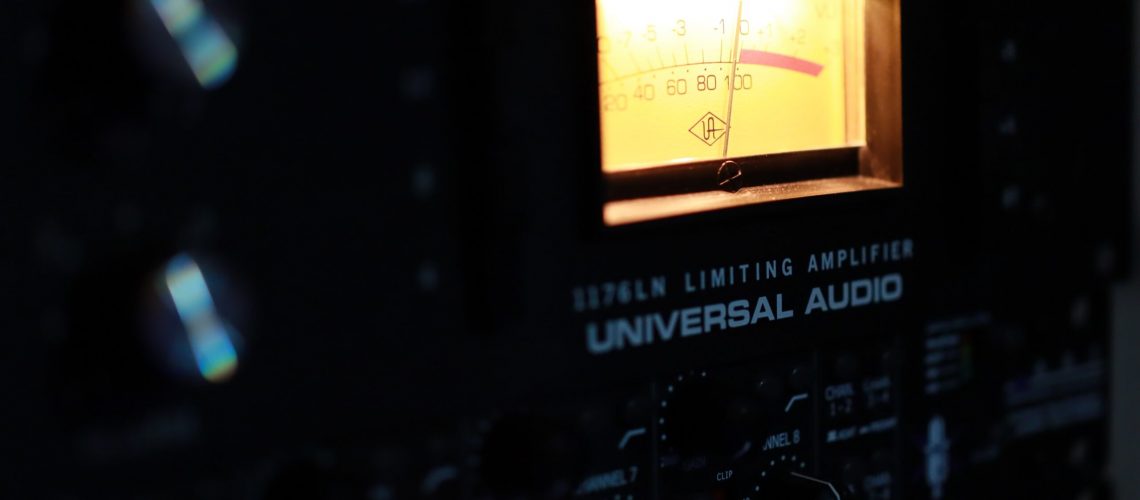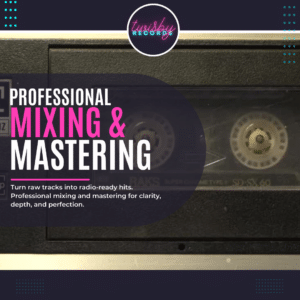Hello again my friends!
One common question I see all the time is: “can mastering fix a bad mix?”. Well, Mastering is the final step in the music production process. It involves taking the final mix and making it sound as good as possible for distribution. While mastering is an essential part of the process, it is often misunderstood. One common misconception is that mastering can fix a bad mix.
The truth is, mastering CANNOT fix a bad mix! Mastering can take an average mix and make it better, it can take a great mix and make it amazing. However, at the end of the day mastering only enhances what is already in a mix.
- Mastering Cannot Add Clarity to a Muddy Mix
- Mastering Cannot Fix Frequency Imbalances
- Mastering Cannot Fix Poorly Recorded Tracks
- Mastering Cannot Fix Timing Issues
- Mastering Cannot Fix Poor Arrangement
While mastering can polish and enhance a track, it can’t correct a fundamentally flawed mix. As one of the best resources in the industry, Mastering The Mix, explains in their article Difficult Mastering Problems And How To Solve Them, “trying to fix a poor mix during mastering is often ineffective; a well-balanced mix is essential for successful mastering.”
Have no fear, I’m going to dive into each of these reasons listed to give you a better understanding of why mastering is not the stage or the process that will be able to fix those problems.
1. Mastering Cannot Add Clarity to a Muddy Mix
If a mix is muddy, meaning that the individual instruments are not clearly defined, mastering cannot fix this issue. Mastering can only enhance the clarity that is already present in the mix. If the mix is muddy, mastering will only make the problem more apparent. You don’t have the options at your disposal when you are at the mastering stage, working with a fully mixed down stereo audio file, to be able to fix the problems that are making a mix fundamentally muddy.
If there is too much boxiness in your kick drum, or too much low end mud in your bass guitar, and those two elements are combining to make your mix a muddy mess, then mastering is not the time to fix that issue. The only way to effectively remove mud from elements in a mix, and make sure that nothing is unnecessarily masking an element that needs to be featured, is to do that in the mixing stage when you are working at the multitrack level.
Once the mix has been fully mixed down to a stereo audio file your mastering engineer will not be able to fix these issues. The only fix is for them to send it back to mixing to have those things sorted out before they do the work they are going to do.
2. Mastering Cannot Fix Frequency Imbalances
Much like mastering being unable to fix a muddy mix, it also cannot fix fundamental problems in the overall frequency, or tonal, balance in the mix. At the mastering stage you can continue to steer and enhance the overall tone of the mix that has been given, but you cannot fundamentally change a mix that either has way too much or too little of any given frequency or frequency range.
Frequency imbalances can be caused by a variety of factors. Subpar listening environment, subpar monitoring solution, general lack of experience mixing, etc. The fix for this problem is again found in the mixing stage. When working with the multitrack mix, frequency imbalances are able to be sorted out to make sure there is not too much or too little of any frequency, or range. The individual elements then can be blended together to achieve a more cohesive tonal balance.
3. Mastering Cannot Fix Poorly Recorded Tracks
If the individual tracks in a mix were poorly recorded, mastering cannot fix this issue. If a track was recorded with a lot of noise, clipping, or distortion, mastering will only make the problem more apparent. There are tools that can help save damaged or poor recordings, such as iZotope RX. However, tools like that can only do so much, and if a track is too damaged or too poorly recorded, all the RX in the world won’t be able to fix that.
The only way to fix too damaged or too poorly recorded tracks is to simply re-record them! That’s it, there is nothing else to do. It is time consuming, and depending on the circumstances, costly. The best way to avoid this is to be meticulous at the recording stage to make sure that you are getting high quality, clean, recordings.
4. Mastering Cannot Fix Timing Issues
If there are timing issues with the individual tracks that have been mixed down, mastering will not be able to fix that. If a kick drum is not in time with a down beat, or a snare drum is not on the 2, this problem cannot be corrected in fully mixed down project. The only fix is to go back to the full multitrack mix correct those timing issues on the individual track level. If your mastering engineer gets a song with timing issues like that, they will send it back to the mix engineer for correction.
5. Mastering Cannot Fix Poor Arrangement
If the arrangement of a song is poorly done, mastering cannot fix this issue. If a song has too many instruments playing at the same time or if the vocals are buried in the mix, mastering will only make the problem more apparent. A good producer won’t let a problem like this even make it to the mixing stage. Mastering simply cannot make a poor or lackluster arrangement exciting and engaging. The only fix to this problem is to continue working on your craft if you are producing, or to find a producer to work with that has this knowledge and the sixth sense of what makes a great arrangement for your song.
The Role Of Mixing
That is all the ways that mastering can’t save a mix, and all the problems that are listed are things that must be addressed in the mix stage. So then, what is the role of mixing?
Mixing is the process of combining individual tracks into a cohesive final product. The goal of mixing is to balance the levels of the instruments, create space in the frequency spectrum, and create a cohesive tone. A well-mixed song will have clear and defined instruments, a balanced frequency spectrum, and a cohesive tone.
If a mix is done well, mastering can enhance the mix and bring it to the next level. Mastering can add depth and dimension to the mix, enhance the clarity and balance of the individual instruments, and bring out the overall best of the song.
How To Avoid A Bad Mix
The best way to avoid a bad mix is to spend time on the mixing process. Here are some tips for a successful mix:
- Hire A Professional: Hiring a professional mix engineer is the best way to ensure that your song will have a great mix that will be ready for mastering
- Use high-quality recordings: The better the individual recordings, the easier it will be to create a cohesive mix.
- Balance the levels of the instruments: Make sure that each instrument can be heard clearly and that no instrument is too loud or too soft.
- Create space in the frequency spectrum: Make sure that each instrument has its own frequency range and that there is no overlap between instruments.
- Pay attention to timing: Make sure that each instrument is playing in time with the others and that there are no timing issues in the mix.
- Pay attention to the arrangement: Make sure that each instrument and vocal is placed in the mix in a way that enhances the overall sound of the song.
- Take breaks: It’s easy to get lost in the mix and lose perspective. Taking breaks can help you come back with fresh ears and make better decisions.
- Use reference tracks: Listening to reference tracks can help you understand how a well-balanced mix should sound.
Bringing It Home
I know mastering is presented as some mythical art that only long white haired bearded wizards who live in dark audio dungeons practice, but that’s really not true. Mastering is just the last stop for your song before it hits distribution. A professional mastering engineer will be able to take your song that has a great mix and enhance it to be the best that it can be, and to ensure that it will sound awesome on any speaker that you listen to it on.
My advice to artists is ALWAYS, please don’t try to do this yourselves. Hiring a professional to mix and master your songs will get you money ahead in the long run, and save YEARS of your life honing skills that are irrelevant to what you aspire to do.
For more on why it’s a bad idea to mix and master your own songs, check out my partner Kreg’s thoughts on this: Why You SHOULDN’T Mix And Master Your Own Music
While mastering can elevate a well-balanced mix, it can’t perform miracles on tracks that lack clarity, balance, or cohesion. That’s why the mixing process is so critical, it’s where the magic begins. Twisby Records understands the importance of getting your mix right before taking it to the next level. Here’s how we can make that happen.
















